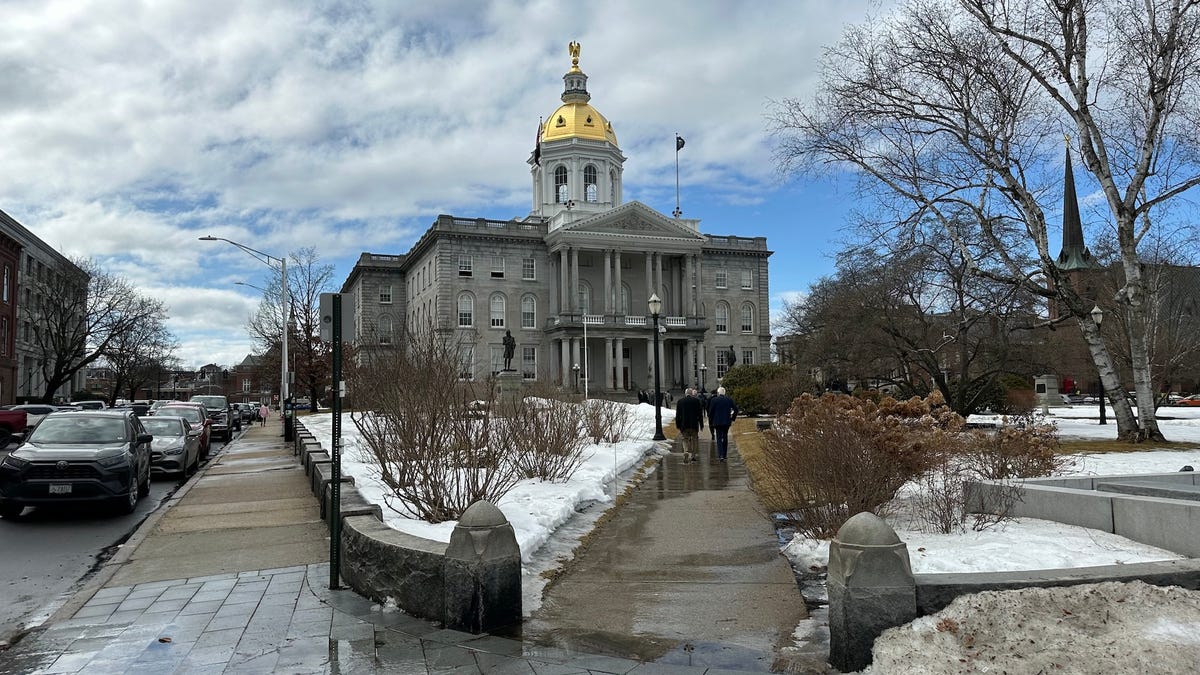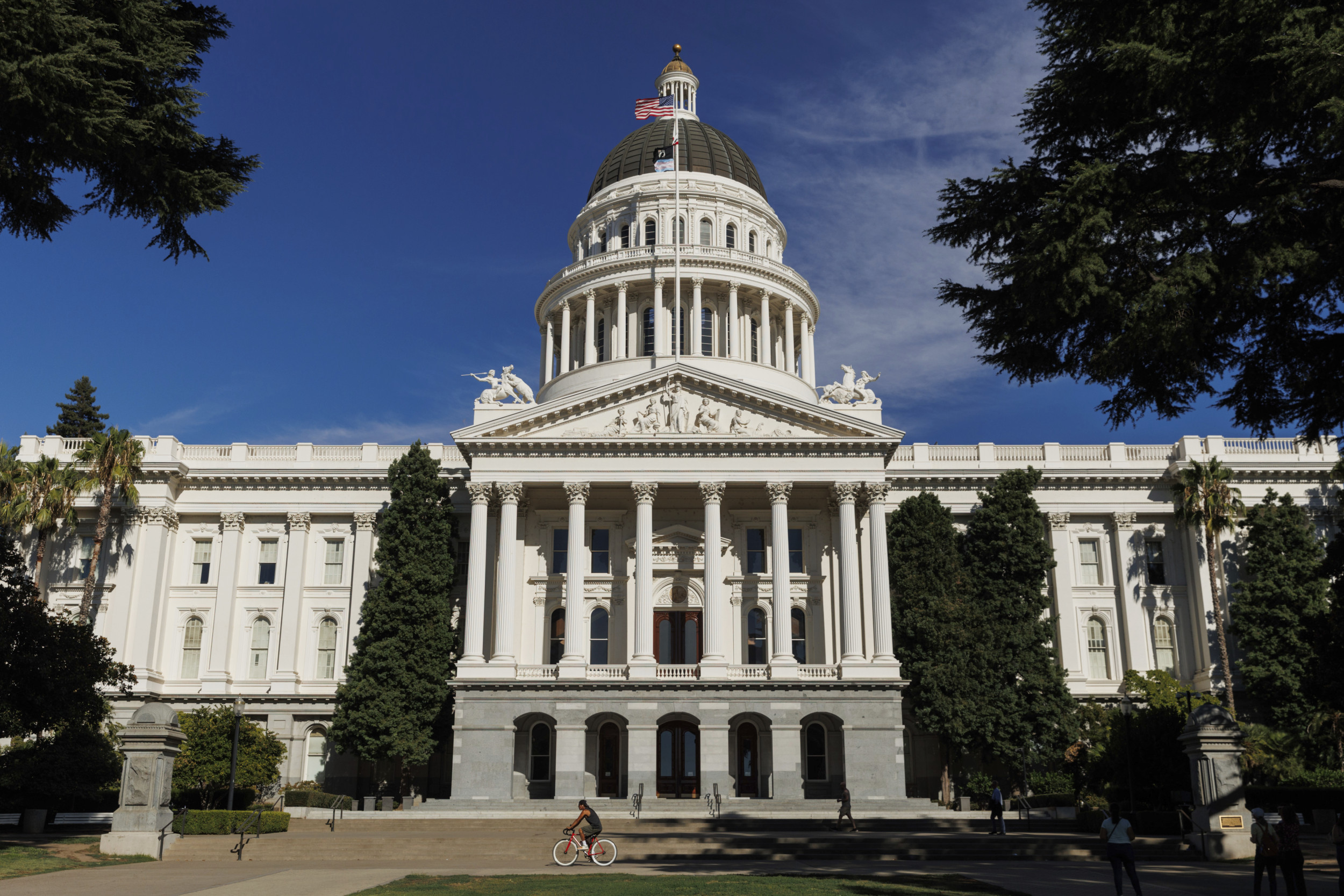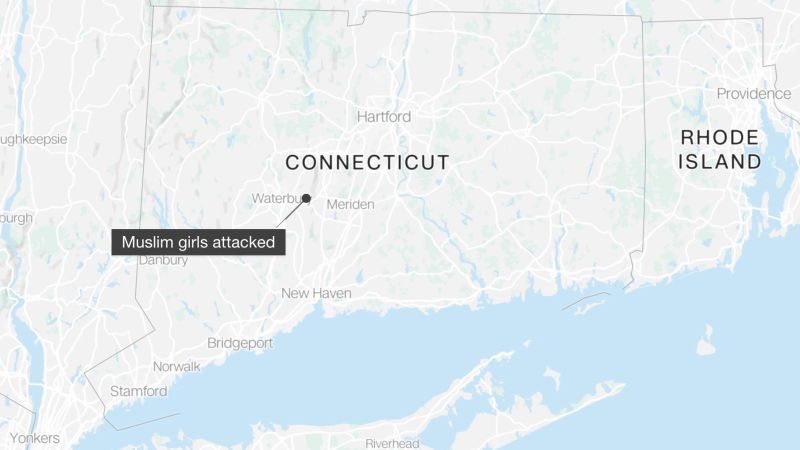Maine
Unions Furious as Democratic Maine Gov. Vetoes Offshore Wind Bill Over Fair Labor Rules

Democratic Maine Gov. Janet Mills on Monday vetoed an offshore wind development bill because she opposed an amendment requiring collective bargaining agreements for future projects, drawing condemnation from the state’s largest federation of unions.
“Maine’s climate motto has been ‘Maine Won’t Wait.’ With this veto, Gov. Mills is saying, ‘Maine Will Wait’—for thousands of good jobs, for clean energy, and for the build-out of a new industry,” Maine AFL-CIO executive director Matt Schlobohm said in a statement. “We will wait because the governor is opposed to fair labor standards which are the industry norm.”
“The governor’s ideological opposition to strong labor standards,” said Schlobohm, “jeopardizes the build-out of this industry and all the climate, economic, and community benefits that come with it.”
Mills supported an earlier version of Legislative Document (L.D.) 1847 that originated from her office. Last week, however, the governor made clear that she opposed the addition of an amendment requiring project labor agreements (PLAs)—pre-hire deals negotiated between unions and employers that establish wage floors and other conditions—for the construction of offshore wind ports as well as the manufacturing of turbines and other components needed for wind energy projects.
In a letter to state lawmakers, “Mills argued that mandating a PLA would create a ‘chilling effect’ for non-union companies, discouraging them from bidding on construction,” The American Prospect‘s Lee Harris reported. “Supporters of the PLA provision say that is a far-fetched objection, since the agreements do not ban non-union contractors from vying for jobs. (In fact, that’s one reason some more radical unionists say PLAs do too little to advance labor’s cause.)”
The governor vowed to veto the bill unless the Legislature recalled it from her desk and revised it to the initial version or adopted “language that would ensure that union workers, employee-owned businesses, and small businesses could all benefit.”
“Maine’s climate motto has been ‘Maine Won’t Wait.’ With this veto, Gov. Mills is saying, ‘Maine Will Wait’—for thousands of good jobs, for clean energy, and for the build-out of a new industry.”
In a Friday letter to Mills, state lawmakers told the governor they would introduce “Maine Resident Priority Language” to encourage contractors to first hire qualified workers who reside in the state.
That last-ditch effort to save the bill was unsuccessful, however. On Monday, the final day of Maine’s legislative session, Mills vetoed L.D. 1847, just as the Maine State Chamber of Commerce had urged her to do.
In her veto letter, which repeated language from last week’s threat letter, Mills wrote, “Generally speaking, I recognize the value of PLAs, or collective bargaining agreements, as a tool to lift up working men and women by ensuring that they are paid strong wages with good benefits.”
However, as The Portland Press Heraldreported, Mills contended that the legislation’s PLA requirement “was a step too far because more than 90% of workers in Maine’s construction industry—which would compete for these jobs—are not unionized.” The governor “also pointed out that no other New England state requires labor agreements for offshore wind development projects.”
Mills wrote that a PLA requirement “could stifle competition, which could cut out thousands of workers and employee-owned businesses, and could end up favoring out-of-state unions in the region, over Maine-based companies and workers—and I do not believe any of us want to see out-of-state workers being bussed up to coastal Maine to build our offshore wind port while Maine workers are sidelined, sitting at home.”
Jason Shedlock, president of the Maine Building and Construction Trades Council and an organizer for the Laborers’ International Union (LiUNA), told the Prospect: “Right now what we see is the opposite. People leave the state every day to go to other states in New England, to earn family-sustaining wages.”
According to Harris:
Maine’s Building Trades include more than 6,000 workers who routinely struggle to find work nearby.
The construction industry has always involved travel. But Shedlock says part of the case for a PLA is that it will grow Maine’s skilled apprentices and eventually its union halls. If non-union contractors win bids on jobs, he said, they will look to the building trades’ apprentice programs for staff.
Maine Sen. Chip Curry (D-11), the bill’s lead sponsor, said in a statement that he is “disappointed by the governor’s veto.”
It “threatens this new industry, putting good jobs for Maine people and the environmental benefits that go along with offshore wind at risk,” said Curry. “Maine voters understand the opportunity that we have, and they overwhelmingly support an offshore wind industry that guarantees workers good pay and benefits, protects our environment and host communities, and reduces our dependence on fossil fuels.”
“This is a critical issue for Maine’s future,” he added. “I remain committed to working with all parties, including Gov. Mills, to find a path forward.”
Earlier this month, the House voted 73-64 to pass L.D. 1847, and the Senate followed suit with a 22-11 vote. The former margin doesn’t meet the two-thirds threshold needed to override Mills’ veto, but the governor reiterated in her Monday letter to lawmakers that she is still committed to reaching a compromise.
According toBangor Daily News, “Mills and progressives could come to a deal on the subject as part of a different bill on offshore wind procurement that the full Legislature has not yet acted upon.” That legislation, L.D. 1895, contains the same labor standards, and the governor has already threatened to veto it unless they are removed.
In an attempt to justify her opposition to PLA requirements, Mills warned that robust pro-worker provisions would put Maine “at a disadvantage compared to other New England states,” adding, “It is imperative that investment in offshore wind facilities and projects foster opportunities for Maine’s workforce and construction companies to compete on a level playing field for this work.”
But according to Schlobohm: “Every single one of the 16 offshore wind projects in development or permitting in the Northeast/East coast is being built under these exact labor standards. The same is true for offshore wind ports. It is the industry norm. Why would Maine lower our standards?”
“Funding from the federal government to support these projects is contingent on these exact labor standards,” he continued. “These bills embody the playbook—pushed by the Biden administration—for how we decarbonize in a way that benefits working people and creates a durable transition.”
The Maine Beacon reported Tuesday that Mills’ veto could cause Maine to miss out on millions of dollars in federal subsidies earmarked for offshore wind development.
“We would expect this type of resistance from a Republican governor,” Francis Eanes, executive director of the Maine Labor Climate Council, toldThe Washington Post. “But to have a Democratic governor impeding the president’s agenda is something that we just didn’t expect.”
As Harris explained: “At stake is whether the offshore wind industry will offer decent work—particularly compared with the industrial-scale solar sector, which promised good-paying careers but has delivered unpredictable temp jobs. In nearly every state, similar fights are playing out as business groups try to beat back labor provisions attached to new federal spending.”
“Labor groups across clean energy are hoping to capture not just installation but manufacturing jobs,” she continued. “Because operations management for offshore wind uses relatively little manpower, retaining the manufacturing is critical. In Scotland, recent reports suggest that heavy investment in offshore wind over the past decade has generated just one-tenth of the jobs promised by government officials, partly because the manufacturing of turbines has been offshored.”

Maine
Orland 7th grader wins 2025 Maine State Spelling Bee

BRUNSWICK, Maine (WABI) – One Maine student is off to the National Spelling Bee in Washington, D.C.
Esme Filippo, a 7th grade student from The Bay School in Blue Hill won the 2025 Maine State Spelling Bee.
Filippo took the top spot in the contest after correctly spelling the word “domesticity”.
The Scripps National Spelling Bee will run from May 26th through May 30th.
Congratulations and best of luck at the national competition Esme!
Copyright 2025 WABI. All rights reserved.
Maine
Trump demands ‘full throated’ apology from Gov. Mills over Maine’s transgender athlete policy


Maine Gov. Janet Mills, left, speaks to President Donald Trump as at a meeting of governors in the State Dining Room at the White House in February. Pool photos via AP
President Donald Trump demanded a “full throated” apology from Gov. Janet Mills on social media Saturday as the White House continues to target Maine for its policy allowing transgender students to compete in women’s and girls sports.
“While the State of Maine has apologized for their Governor’s strong, but totally incorrect, statement about men playing in women’s sports while at the White House House Governor’s Conference, we have not heard from the Governor herself, and she is the one that matters in such cases,” Trump posted on his Truth Social platform Saturday morning.
“Therefore, we need a full throated apology from the Governor herself, and a statement that she will never make such an unlawful challenge to the Federal Government again, before this case can be settled. I’m sure she will be able to do that quite easily. Thank you for your attention to this matter and, MAKE AMERICA GREAT AGAIN!!! DJT”
Mills’ office did not immediately respond to a request for comment on the president’s remarks Saturday.
It was not immediately clear to whom the president was referring when he said that “the State of Maine has apologized.”
Since a heated exchange between Mills and Trump at the meeting of governors last month, Maine has been subject to a slew of federal investigations into its compliance with federal Title IX law.
The U.S. Department of Education informed Maine officials this week that the state is in violation of Title IX for allowing transgender girls to compete in high school athletics. Those findings are the same as those from a separate probe by the U.S. Department of Health and Human Services into the Maine Department of Education, the organization that governs Maine high school athletics and a high school where a transgender student-athlete competes.
A third investigation, by the U.S. Department of Agriculture into the University of Maine System’s Title IX compliance, was resolved to the Trump administration’s satisfaction.
Both the Department of Education and DHHS have proposed corrective action for the Title IX violations, with DHHS saying Monday that the state has 10 days to comply or federal funds will be withheld.
Maine receives more than $280 million in funding from the U.S. Department of Education for various programs, including school lunches and special education.
During the governors meeting in February, Trump had told Mills that he would withhold federal funds from Maine if the state did not comply with an executive order banning competition in women’s and girls sports to anyone not assigned female at birth. Mills, however, maintained that his order conflicted with the Maine Human Rights Act, a state law, and told the president: “See you in court.”
The Trump administration’s challenge of Maine’s policy hinges on a new interpretation of Title IX that argues that allowing transgender athletes to compete in girls sports is a form of discrimination because it deprives women and girls of fair athletic opportunities; such an interpretation is yet to be tested in court. The Maine Human Rights Act, on the other hand, is a state law that, in part, recognizes the rights of students to participate in extracurricular activities without discrimination based on sex, sexual orientation or gender identity, among other things.
Mills has stood by Maine’s policy since the spat. After the administration announced investigations last month, Mills suggested that the conflict was about more than the rights of transgender student-athletes.
“In America, the President is neither a King nor a dictator, as much as this one tries to act like it — and it is the rule of law that prevents him from being so,” Mills said in a written statement.
“I imagine that the outcome of this politically directed investigation is all but predetermined,” Mills continued. “My Administration will begin work with the Attorney General to defend the interests of Maine people in the court of law. But do not be misled: this is not just about who can compete on the athletic field, this is about whether a President can force compliance with his will, without regard for the rule of law that governs our nation. I believe he cannot.”
The Maine Principals’ Association, which was named in the notice of violation from DHHS, is already challenging the Trump administration’s finding that is in violation. In a letter Tuesday, an attorney for the association said the organization receives no federal funding of any kind and thus cannot be in violation of Title IX.
In its report, DHHS cited a transgender Greely student’s win at an indoor track championship, as well as a report of a different transgender student from another school competing in a girls Nordic skiing race.
Meanwhile, the U.S. Department of Agriculture launched a separate Title IX investigation against the University of Maine System. After briefly halting millions in federal funding for UMaine programs, the USDA said this week that it was satisfied that the system was in compliance and that its schools would be able to access federal funds going forward. UMaine officials have said that the system was already in compliance and noted that no transgender athletes were competing on any of the system’s campuses.
“The University of Maine System has always maintained its compliance with State and Federal laws and with NCAA rules,” system Chancellor Dannel Malloy said in a statement this week. “We are relieved to put the Department’s Title IX compliance review behind us.”
Maine
Where to find the best dive bars in Maine

This story was originally published in February 2024.
In an age where $15 cocktails have become the norm, beer lists read like novels and words like “elevated” and “gastronomy” appear on menus, a dive bar can really hit the spot.
It’s hard to define what exactly a dive bar is, but it’s probably unglamorous, lived-in and decidedly unpretentious.
The decor isn’t fancy, though it can certainly be fanciful. There’s probably a pool table or a jukebox. It’s likely cash only. The food — if there is any — is simple.
Dive bars in some places in Maine can be a dying breed, as profit margins shrink in the face of rising costs of doing business. But make no mistake: there are many that continue to thrive, offering a place where the beer is cheap, the company is colorful and nobody is worried about how cool they look.
Here are some of the greatest dive bars in Maine, from the farthest points east all the way to the south. Do you think we missed one? Let us know in the comments.
The New Waverly
36 Merchants Plaza, Bangor
This cash only staple in Bangor has been run by four generations of the Puiia family since it first opened on Exchange Street in 1918, and barely lost a step when it moved to its current home in Merchants Plaza in 1974. You’ll find an eclectic mix of old timers nursing a beer at the bar and younger folks playing pool and dominating the jukebox upstairs. Buddy the chocolate lab is not just the Wave’s mascot: he’s also the mayor of downtown Bangor. It says so on the T-shirts.
The Main Tavern
152 Main St., Bangor
Another local institution, the Main Tavern is also a multi-generational family business, with the Brountas family holding down the fort on Main Street since 1939, under a few different names like the Jaguar or Peter’s Candlelighter. It’s famous for a lot of stuff, including as the go-to place for karaoke in downtown Bangor, and for its infamous Bong Water shots — a proprietary blend of various sweet liquors that might get you in trouble if you have more than one.
Caps Tavern
494 South Main St., Brewer
This South Brewer bar was rebuilt and reopened in 2018 after a fire in 2017 burned the original to the ground, and aside from the building itself, not much else changed. Cheap beer. Fun mixed drinks. Lots of motorcycles in the parking lot. Classic rock and country, either on the jukebox or played by a live band.
Peppers Pub
20 Water St., Ellsworth
Peppers Pub keeps it real by focusing on friendly bartenders and simple — and good — food. Its Sunday breakfasts are a popular stop after church or before another long work week. The bar does a lot of fundraisers for people in the community struggling with medical bills or other issues. There’s a reason it’s been beloved by locals for years now.
Ole Hookers
106 Water St., Eastport
Nothing makes you feel like more of a salty sea dog than sidling up to a bar in a town like Eastport — and Ole Hookers East, across the street from the Coast Guard station, certainly fosters those vibes. You kind of feel like you’re in somebody’s house. The decor is funky, the food is home cooked and it gets extra spicy during the Eastport Pirate Festival in September.
Myrtle Street Tavern
12 Myrtle St., Rockland
Does a bar automatically get to be a dive if they have pickled sausages and eggs? Because Myrtle Street Tavern in Rockland does. There’s lots of other reasons why it’s a classic dive, however — not least because it’s been around for a whopping 127 years. You can truly let loose at Myrtle. Generations of people have.
Amigos

9 Dana St., Portland
Amigos is supposed to be a Mexican restaurant, and it is — but it’s at night when the longest-running bar in the Old Port really shines. There’s live music on the patio during the warmer months. It has one of the best happy hours in town. They may have spruced up the menu and there’s craft beer available, sure, but Amigo’s is still a divey classic amid a sea of trendy newcomers in the Old Port.
Ruski’s
212 Danforth St., Portland
The oldest continually operating bar on this list, Ruski’s opened under a different name in 1892 as an Irish-run beer hall — before cars, before phones and before widespread electricity. It’s hard not to love this place. It’s one of the few remaining bars of its kind in Portland, as mom and pop businesses get priced out.
Skip’s Lounge
288 Narragansett Trail, Buxton
This longtime rural joint has been around since the 1970s, as its elegant wood paneling suggests. It’s got six pool tables and a function room large enough to hold professional wrestling in, and a fully carpeted, floor to ceiling stage — but its dive bar credentials came first. It started out as a house trailer and has grown and grown. It’s the only roadhouse for miles around.
-

 Midwest1 week ago
Midwest1 week agoOhio college 'illegally forcing students' to share bathrooms with opposite sex: watchdog
-

 News1 week ago
News1 week agoJudges threatened with impeachment, bombs for ruling against Trump agenda
-

 News1 week ago
News1 week agoVideo: Researchers Find Shipwreck Lost Since 1892
-

 Politics1 week ago
Politics1 week agoBarely: House GOP passes government funding bill without help from Democrats
-

 World1 week ago
World1 week agoRussia, China call on US to drop Iran sanctions, restart nuclear talks
-

 Politics1 week ago
Politics1 week agoAll illegal migrants held in Guantanamo Bay, Cuba have been sent to Louisiana
-

 News1 week ago
News1 week agoFor Canadians Visiting Myrtle Beach, Trump Policies Make the Vibe Chillier
-

 News1 week ago
News1 week agoArlington National Cemetery stops highlighting some historical figures on its website

















